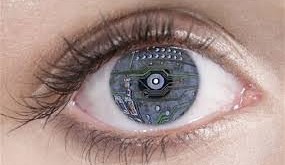The Internet of Things (IoT) has revolutionized the way we live and work, and the healthcare industry is no exception. Medical Internet of Things (MIoT) is the use of IoT in healthcare. This involves connecting medical devices and sensors to the internet so that healthcare providers can collect and analyze vast amounts of data about patients’ health. This data can then be used to improve diagnosis, treatment, and prevention of diseases.
Cognitive Cyber-Physical Systems (CCPS) are becoming increasingly popular in various industries, including healthcare. CCPS are systems that combine physical components, such as sensors and actuators, with computational devices, such as computers and software, to create intelligent systems that can learn and adapt to their environment.
With the emergence of Medical Internet of Things (MIoT), integrating the network of medical devices into CCPS has become a reality. This integration has paved the way for more advanced medical informatics and Cyber-Physical-Human Medical Systems. However, building and implementing cognitive cyber-medical systems come with its own set of challenges. This blog article will explore the advancements and challenges of CCPS in Medical IoT.
For a deeper understanding of Cognitive Cyber-Physical Systems (CCPS) please visit: Comprehensive Guide to Cognitive Cyber-Physical Systems: Theory, Design, and Applications
Advancements in Cognitive Cyber-Physical Systems in Medical IoT
Cognitive Cyber-Physical Systems (CCPS) integrate machine learning and artificial intelligence techniques with physical components and computational devices. CCPS has numerous applications in healthcare, such as monitoring vital signs, tracking medication adherence, and predicting health outcomes. The integration of MIoT into CCPS has resulted in significant improvements in healthcare.
One of the major advancements in CCPS is the use of cognitive data in cloud, big data, IoT, and fog computing. Big data processing, cognitive data science AI, and real-time sensors have made it possible to create more realistic digital twins that can properly model different operating situations and characteristics to process medical intelligence systems.
Another major advancement in CCPS is the use of machine learning algorithms. Machine learning algorithms can be used to analyze medical data and provide insights that can be used to improve patient care. For example, machine learning algorithms can be used to predict patient outcomes, identify high-risk patients, and provide personalized treatment plans. Machine learning algorithms can also be used to analyze medical images and provide more accurate diagnoses.
When CCPS are used in MIoT, it can lead to a number of benefits: By leveraging the power of cognitive data, CCPS can help doctors make better-informed decisions, improve patient outcomes, and reduce healthcare costs.
-
- Improved diagnosis and treatment: By collecting and analyzing more data, healthcare providers can get a better understanding of patients’ health conditions. This can lead to more accurate diagnoses and more effective treatments.
- Prevention of diseases: By monitoring patients’ health closely, CCPS can help to identify potential problems early on. This can help to prevent diseases from developing in the first place.
- Personalized medicine: CCPS can be used to create personalized treatment plans for each patient. This can lead to better outcomes and improved quality of life.
Challenges in Cognitive Cyber-Physical Systems in Medical IoT
Despite the numerous advancements in CCPS in Medical IoT, building and implementing these systems come with its own set of challenges. One of the major challenges is the need to handle network and multi-core systems. The next-generation computing technologies consist of tightly coupled computation and communication components. Therefore, building a system that can handle the network and multi-core systems can be a daunting task.
Another major challenge is the risk management for CPS/MIoT applications. Healthcare data is highly sensitive and confidential, and any breach in security can have serious consequences. Therefore, it is essential to ensure that the system is secure and that the data is protected at all times.
- Data security: CCPS collect and store large amounts of sensitive patient data. It is important to ensure that this data is secure and protected from unauthorized access.
- Interoperability: Different medical devices and sensors use different standards. It is important to ensure that CCPS can interoperate with these different devices and sensors.
- Cost: CCPS are still relatively expensive. It is important to reduce the cost of CCPS so that they are more affordable for healthcare providers.
Finally, another challenge is the collaborative learning frameworks towards MCPS. Building a system that can handle collaborative learning frameworks can be difficult, as it requires the integration of different data sources and the ability to learn from different sources.
Conclusion
Cognitive Cyber-Physical Systems (CCPS) are becoming increasingly popular in healthcare, and the integration of Medical Internet of Things (MIoT) has resulted in significant advancements in medical informatics and Cyber-Physical-Human Medical Systems. CCPS has numerous applications in healthcare, such as monitoring vital signs, tracking medication adherence, and predicting health outcomes.
However, building and implementing cognitive cyber-medical systems come with its own set of challenges. The challenges include the need to handle network and multi-core systems, risk management for CPS/MIoT applications, and collaborative learning frameworks towards MCPS.
Despite the challenges, CCPS has the potential to revolutionize healthcare and improve patient outcomes. As the technology continues to develop, we can expect to see more and more applications of CCPS in healthcare in the years to come.
 International Defense Security & Technology Your trusted Source for News, Research and Analysis
International Defense Security & Technology Your trusted Source for News, Research and Analysis
